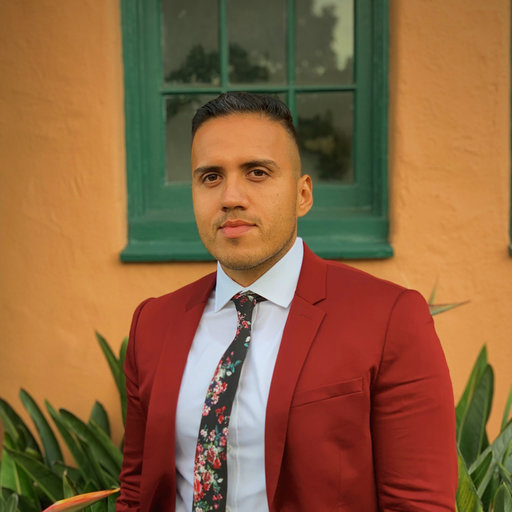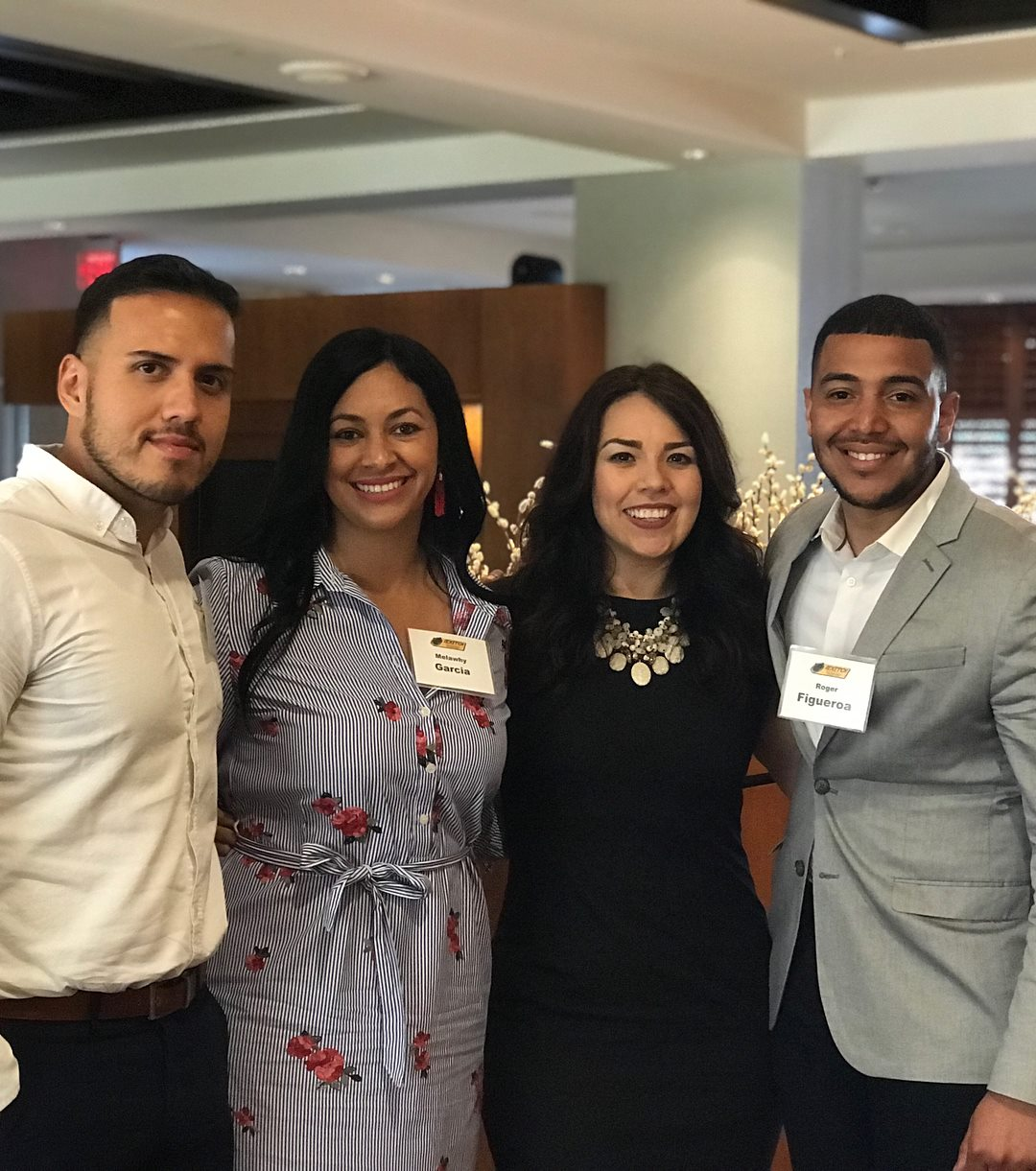
Share On Social!
Dr. Benjamín Aceves wasn’t sure if he wanted to pursue a PhD.
He was hesitant about the commitment. He didn’t have a background in academia that many pursuing PhD programs do.
But after attending the Éxito! Latino Cancer Research Leadership Training at UT Health San Antonio, Aceves grew his network of scholars and learned about resources that could help him succeed in a PhD program.
“My experience at Éxito! was mind-opening for sure,” Aceves said.
He went on to earn his PhD and now is a postdoctoral scholar at the University of California in San Francisco, where he researches the intersection of Latino health, chronic disease prevention, and the social determinants of health.
Learning About Éxito!
Aceves learned about Éxito! from his peers, who encouraged him to attend.
“I had known some friends that had done it already and they were really pushing me to do it. And they said, ‘If you don’t want to do a PhD, it’s at least a good time and it’s a fun trip and it’s all paid for.’ I just thought, why not try it?” Aceves said.
Éxito!, led by Dr. Amelie G. Ramirez of the Institute for Health Promotion Research in the Department of Population Health Sciences at UT Health San Antonio, recruits 25 master’s-level students and health professionals annually for a culturally tailored summer institute in San Antonio, Texas, optional internships, and ongoing education to promote pursuit of a doctoral degree and cancer research career.
Aceves hoped that the program would help him find out if he should pursue a PhD.
“I think initially, I was on the fence. I had thought, ‘Yeah, I could do it. It’s something I would be interested in.’ But then at the same time, I think there was always this hesitation, do I really want to go down the route of doing a PhD?” Aceves said.
What Aceves Learned From Éxito!
At Éxito!, Aceves was able to connect with other Latinos who were also contemplating a PhD.
One of the most valuable things he learned was the financial assistance that’s available for him.
 “I think one of the things that I quickly learned was the loan repayment program that the NIH has. Finding out things like the loan repayment program, the K award, the different types of R grants, it really shed a lot of light on the whole process for getting into health science specific research, specifically NIH-funded research,” Aceves said.
“I think one of the things that I quickly learned was the loan repayment program that the NIH has. Finding out things like the loan repayment program, the K award, the different types of R grants, it really shed a lot of light on the whole process for getting into health science specific research, specifically NIH-funded research,” Aceves said.
Having that knowledge about the different financial assistance programs made the idea of a PhD seem much more plausible to Aceves.
“A lot of people going into a PhD program don’t know about those things. They don’t know about the F31s, the diversity supplements going into a doctorate. If you’re worried about putting more debt on yourself going into a PhD, there is a program that helps alleviate that debt once you’re done as long as you’re staying within that track. Really understanding the funding mechanisms that there are within the NIH was so beneficial and priceless, and I think it really put a leg up for myself,” Aceves said.
After attending Éxito!, Aceves applied and was accepted into University of Arizona’s Health Behavior and Health Promotion PhD program.
The Barriers That Latinos Face in Academia
As a first-generation college student, Aceves didn’t have the background of postdoctoral education that many going into academia have.
That puts him and other first-generation Latinos at a disadvantage when going into the field.
“Because academia doesn’t have a lot of Latinos in it, doesn’t have a lot of people of color in general, but specifically Latinos, it’s very difficult to really understand all of the processes. And so I think this program really helped make the playing field a little bit more equitable for certain communities,” Aceves said.
Éxito! aims to address the underrepresentation of Latinos in academia, as Latinos earn just 3.9% of all science and engineering doctoral degrees conferred, according to the National Science Foundation.
Without the background in academia, it can be harder to network and get your foot in the door when applying to PhD programs.
“I think even getting an email back from someone saying ‘Yes, I’m willing to work with you. I’m willing to talk to you about the PhD program,’ that was already a huge challenge,” Aceves said.
The lack of awareness of how many Latino students haven’t had access to the same resources as others also makes it difficult. Plus, a lack of Latino mentors means that students have few places to turn to for questions.
“When you’re applying, they want all these skill sets, they want all of these things, but they’re not cognizant of the fact that we don’t grow up with the resources to reach those levels. And on top of that, there’s no networks that people can contact to be like, ‘What do I need? What kind of research do I need?” Aceves said.
That’s where Éxito! made all the difference.
“I can’t imagine how many more barriers there would have been if I hadn’t attended Éxito! I think there were so many barriers and Éxito! helped make it tangible whereas before I was just completely lost. I wouldn’t have known how to start,” Aceves said.
His Advice for Latinos Students
Aceves hopes that Latino students will push through the imposter syndrome and advocate for themselves.
“That feeling that you’re always behind the curb never goes away, so just be aware of that going in. I think if you’re aware of that, it’ll help you realize that you need to focus on your strengths. You need to really focus and sell your strengths and sell who you are and what you come from,” Aceves said.
Having Latino mentors who can guide you through academia is also essential.
“Just find people who you think are really going to support you in that process and find those networks. It’s not just one person, find a network of people at those institutions that are doing the kind of research you want to engage in,” Aceves said.
Learn More About Éxito!
Of 226 Éxito! trainees since 2011, over 25% have enrolled in or, like Aceves, graduated from a doctoral program.
Also, the Éxito! summer institute significantly increased trainees’ confidence to apply to a doctoral program and academic self-efficacy, according to a 2019 study of Éxito! program results published in the Journal of Cancer Education. The study also found significant increased research skills among Éxito! interns.
In 2018, Éxito! was named an innovative “Program to Watch” in a report by Excelencia in Education, a national group that promotes Latinos in higher education. The group also includes Éxito! as part of its “Growing What Works Database.”
Excelencia also selected Éxito! as a winner of its 2021 “Examples of Excelencia” award, having also been a finalist in 2018 and 2019.
Go to www.exitotraining.org for more information.
How Can I Advocate for Latinos in Healthcare?
You can make a difference by advocating for health equity in your own community.
Select your county name and get a customized Health Equity Report Card from Salud America! at UT Health San Antonio, which shows your area stacks up in housing, transit, poverty, health care, food, and other health equity issues compared to your state and nation.
The Health Equity Report Card auto-generates local data with interactive maps and comparative gauges, which can help you visualize and explore health inequities.
Latinos in healthcare like Aceves may also face barriers and bias when working in the industry.
Did you know that doctors have implicit, subconscious preferences for white patients over those of color?
This is implicit bias.
These biases — stereotypes that affect our understanding and decisions about others beyond our conscious control — lead to discrimination and health disparities.
Fortunately, implicit bias can be “rewired” for compassion for patients of color.
Download the free Salud America! Action Pack “Health Care Workers and Researchers: Find If You Have Implicit Bias and What to Do Next.”
By The Numbers
3
Big Excuses
people use to justify discriminatory behavior
This success story was produced by Salud America! with support from the Robert Wood Johnson Foundation.
The stories are intended for educational and informative purposes. References to specific policymakers, individuals, schools, policies, or companies have been included solely to advance these purposes and do not constitute an endorsement, sponsorship, or recommendation. Stories are based on and told by real community members and are the opinions and views of the individuals whose stories are told. Organization and activities described were not supported by Salud America! or the Robert Wood Johnson Foundation and do not necessarily represent the views of Salud America! or the Robert Wood Johnson Foundation.



